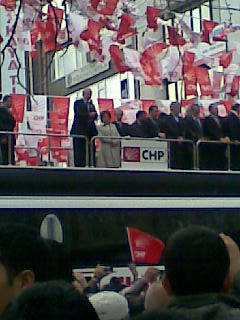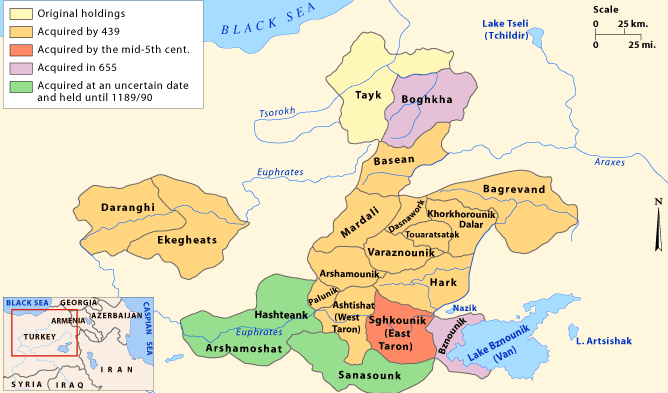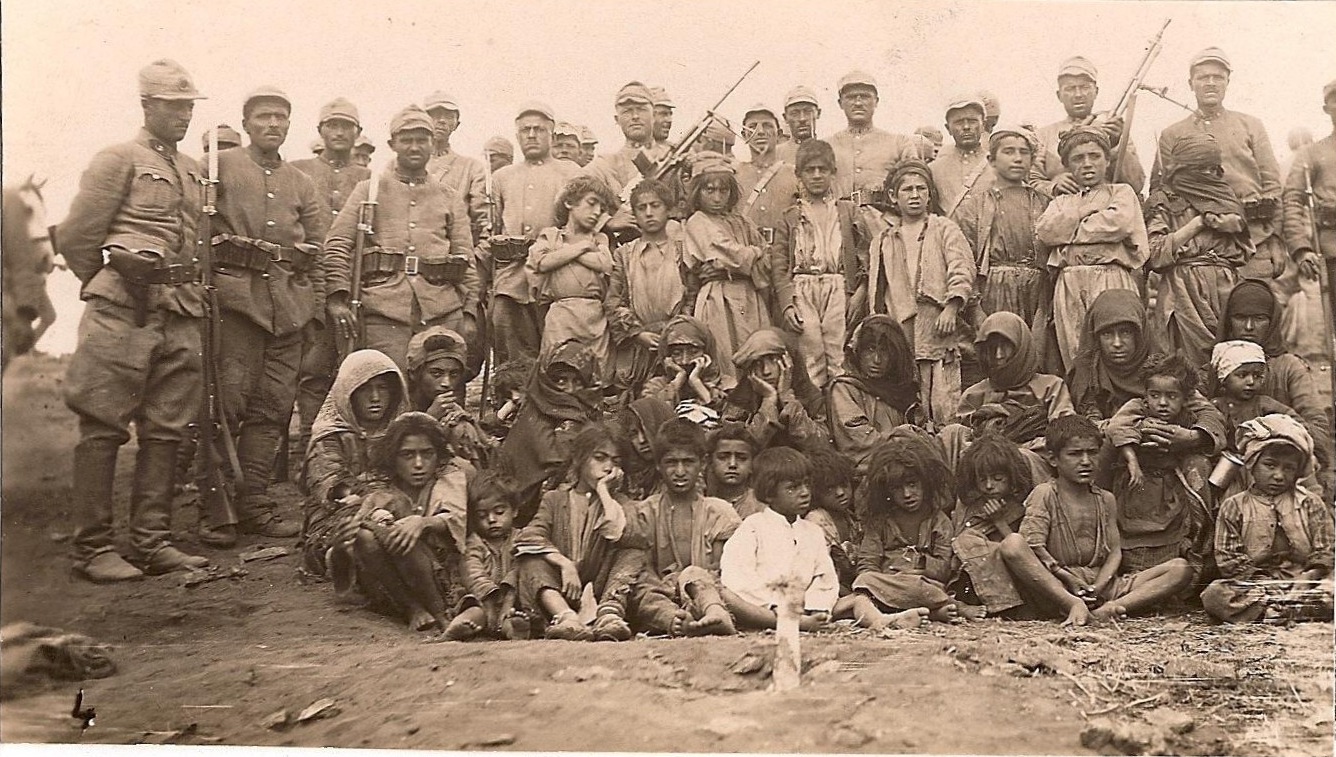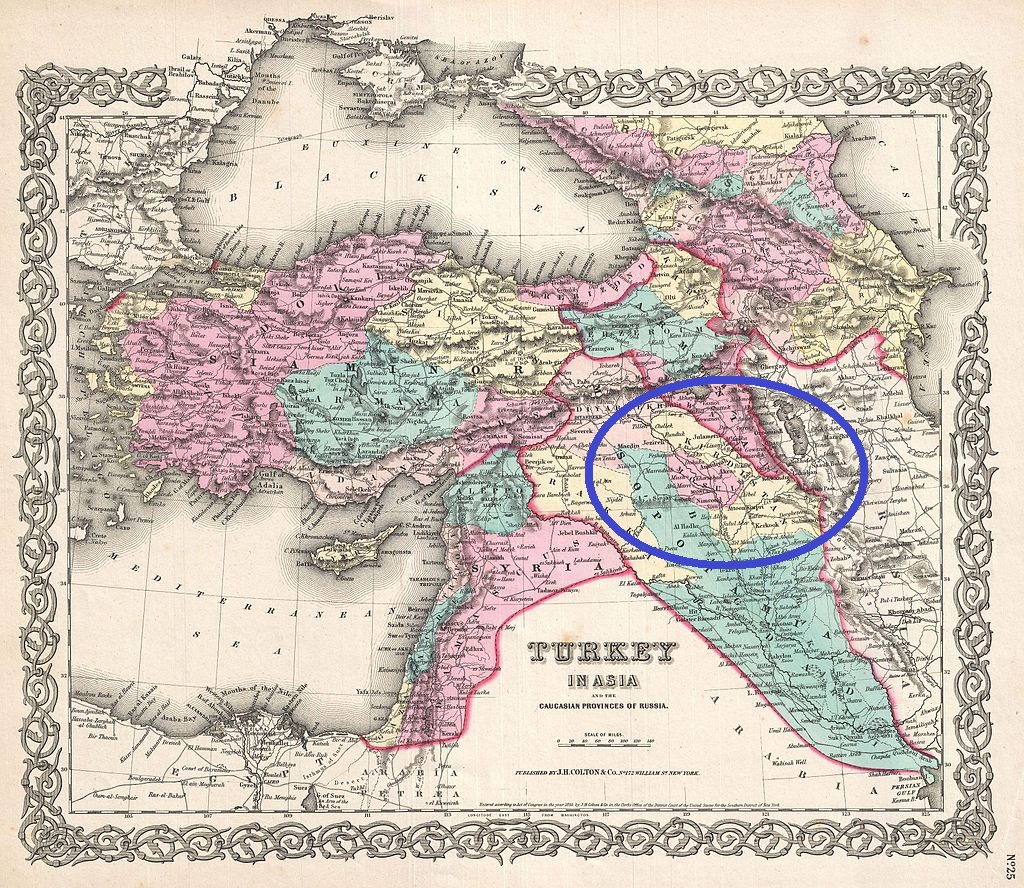|
Nazımiye
Nazımiye (), formerly known as Kızıl Kilise (, ), is a municipality and seat of the Nazımiye District of Tunceli Province in Turkey. It had a population of 1,262 in 2021. It is populated by Zazas, Zaza Kurds of the Arel and Lolan (tribe), Lolan tribes. The main religion is Kurdish Alevism and main language is Zaza language, Zazaki. At the same time, Hidden Armenians, crypto-Armenians who survived the Armenian genocide also live in Nazımiye. History Its old name is ''Kızıl Kilise'' (). The settlement, which came under Ottoman Empire, Ottoman rule after the Battle of Battle of Chaldiran in 1514, was first connected to the Çemişgezek Sanjak and then to the Mazgirt Sanjak. In the census of the period of 1521–1523, the settlement was in the status of a village with the name Kızıl Kilise, and there were 23 households in the settlement where the members of the Dersimlü tribe lived at that time. The settlement, which was connected to Erzincan in 1847, rose to the status ... [...More Info...] [...Related Items...] OR: [Wikipedia] [Google] [Baidu] |
Nazımiye District
Nazımiye District is a district of Tunceli Province in Turkey. The town of Nazımiye is the seat and the district had a population of 3,011 in 2021. Its area is 543 km2. Composition Beside the town of Nazımiye, the district encompasses twenty-five villages and 169 hamlets A hamlet is a human settlement that is smaller than a town or village. This is often simply an informal description of a smaller settlement or possibly a subdivision or satellite entity to a larger settlement. Sometimes a hamlet is defined f .... Villages # Aşağıdoluca # Ayranlı # Ballıca # Beytaşı # Bostanlı # Büyükyurt # Çevrecik # Dallıbahçe # Demirce # Dereova # Doğantaş # Geriş # Güneycik # Günlüce # Güzelpınar # Kapıbaşı # Kılköy # Ramazanköy # Sapköy # Sarıyayla # Turnayolu # Yayıkağıl # Yazgeldi # Yiğitler # Yukarıdoluca References {{DEFAULTSORT:Nazimiye District Districts of Tunceli Province Nazımiye District [...More Info...] [...Related Items...] OR: [Wikipedia] [Google] [Baidu] |
Kemal Kılıçdaroğlu
Kemal Kılıçdaroğlu (; born 17 December 1948), also referred to by his initials KK, is a Turkish politician who served as the Leader of the Republican People's Party, leader of the Republican People's Party (CHP) from 2010 to 2023. He was List of the Main Opposition Leaders of Turkey, Leader of the Main Opposition in Politics of Turkey, Turkey between 2010 and 2023. He served as a Member of Parliament#Turkey, member of Grand National Assembly of Turkey, parliament for Istanbul (electoral districts), Istanbul's Istanbul (2nd electoral district), second electoral district from 2002 to 2015, and as an MP for İzmir (electoral districts), İzmir's İzmir (2nd electoral district), second electoral district from 2015 to 2023. Before entering politics, Kılıçdaroğlu was a civil servant and served as the director-general of the Social Security Institution from 1992 to 1996 and again from 1997 to 1999. He was elected to Parliament in the 2002 Turkish general election, 2002 general e ... [...More Info...] [...Related Items...] OR: [Wikipedia] [Google] [Baidu] |
Tunceli Province
Tunceli Province (), formerly Dersim Province (; ; ), is a province in the Eastern Anatolia Region of Turkey. Its central city is Tunceli. The province has a Kurdish majority. Moreover, it is the only province in Turkey with an Alevi majority. The province has eight municipalities, 366 villages and 1,087 hamlets. History Antiquity This region was known as Ishuva in the 2000s BC. As a result of the struggle of the Ishuva Kingdom, which was established by the Hurrians in the region, with the Hittites, the region came under the rule of the Hittites in the 1600s BC. Then, it came under the domination of the Urartians and formed the westernmost part of the country of Urartu. After that, it was ruled by Medes and the Persian Achaemenid Empire, and after that it was ruled by Alexander the Great, king of Macedon. Ottoman Empire rule Although the presence of Ottoman Empire was beginning to be felt in the region after Mehmed II the Conqueror defeated the Aq Qoyunlu in 1473, ... [...More Info...] [...Related Items...] OR: [Wikipedia] [Google] [Baidu] |
Edibe Şahin
Edibe Şahin (born 1960 in Nazımiye, Tunceli Province, Tunceli, Turkey) was the mayor of the municipality of Tunceli (Mamekiye), the capital of Tunceli Province in Eastern Anatolia Region, Eastern Anatolia, for the Democratic Society Party (DTP). She is of Kurds, Kurdish Alevism, Alevi origin. Early life and education She was born in Nazımiye in 1960 and attended high school in Tunceli. Later she graduated from the Vocational School for Girls in Ağrı. She worked as a treasury clerk until in 1980 she went into exile, due to the political situation after the 1980 Turkish coup d'état, military coup. Even after an amnesty she did not return. Before returning to Turkey to stand for election, she worked for many years for women and human rights organizations. Political career After joining the Democratic Society Party (DTP) she was involved in the female branch of the party. She was elected as Mayor of Tunceli in the 2009 Turkish local elections, local elections of 2009 for th ... [...More Info...] [...Related Items...] OR: [Wikipedia] [Google] [Baidu] |
Kamer Genç
Kamer Genç (February 23, 1940 – January 22, 2016) was a Turkish politician, elected a member of parliament for the Republican People's Party in the 1987 and 1991 elections, for the True Path Party in the 1995 and 1999 elections, as an independent candidate in the 2007 elections, returning to the Republican People's Party on 1 June 2010, for which he was reelected in the 2011 elections. Life Genç was born in 1940 in Ramazanköy, a village in Nazımiye in Tunceli Province. Raised in an Alevi family, as a young man he spent summers with his father, Ali Genç, in Silahtarağa, Istanbul doing manual labor. He was a successful student, and in 1960 he was accepted as a boarder at the Financial School in Ankara. However, when the school was closed for repairs, he had to continue his education at Tunceli High School for a time. Afterward he returned to the Financial School. When his brother Hıdır was dying of measles, Kamer went to work with his father. In 1966, he graduated ... [...More Info...] [...Related Items...] OR: [Wikipedia] [Google] [Baidu] |
Alican Önlü
Alican Önlü (born 27 December 1967, Nazimye, Turkey) is a Turkish politician of Kurdish origin of the Peoples Democratic Party (HDP) and a member of the Grand National Assembly of Turkey. Throughout his political career he was a politician in a variety of parties such as the Democracy Party (DEP) and the Democratic Society Party (DTP). Political career Önlü is a Kurdish politician of the Alevi faith and has been active in several political parties. Beginning with the People's Labour Party (HEP) he later joined the DEP, the People's Labor Party (HEP), the People's Democracy Party (HADEP), then the Democratic Society Party (DTP) and the Democratic Regions Party (DBP) before he joined the HDP. He was active in the Istanbul branch for the HADEP and the Democratic People's Party (DEHAP) in Tunceli. In the parliamentary elections of June 2015 Önlü was elected to the Grand National Assembly of Turkey, representing Tunceli for the Peoples Democratic Party (HDP). He was re ... [...More Info...] [...Related Items...] OR: [Wikipedia] [Google] [Baidu] |
Dersim Rebellion
The Dersim massacre, also known as Dersim genocide, was carried out by the Turkish military over the course of three operations in the Dersim Province (renamed Tunceli) against Kurds, Kurdish rebels of Kurdish Alevism, Alevi faith, and civilians in 1937 and 1938. Although most Kurds in Dersim remained in their home villages, notes that "Dersim rebellion" is a label applied by some and contested by others thousands were killed and many others were expelled to other parts of Turkey. Twenty tons of “Chloracetophenone, Chloracetophenon, Iprit, Iperit and so on” were ordered and used in the massacre. According to Turkish Army general Osman Pamukoğlu, in the 1990s, the Dersim massacre was carried on the operational order of Mustafa Kemal Atatürk. On 23 November 2011, Turkish prime minister Recep Tayyip Erdoğan apologized for the massacre, describing it as "one of the most tragic events of our near history" adding that, whilst some sought to justify it as a legitimate response to ... [...More Info...] [...Related Items...] OR: [Wikipedia] [Google] [Baidu] |
Ali Haydar Kaytan
Ali Haydar Kaytan (born 26 March 1952 - 18 November 2021), also known as Fuad,Cigerli, Sabri; Saout, Didier Le (2005), pp.68–69 was a co-founder of the Kurdistan Workers' Party (PKK) and a member of the executive council of the Kurdistan Communities Union. Life Ali Haydar Kaytan was born on 26 March 1952 in Nazımiye, Tunceli. He belonged to a Kurdish Alevi family that was settled in place of the Zaza Kurds who were exiled after the Dersim rebellion. He was among the early members of a group along with Abdullah Öcalan, Haki Karer, Mazlum Doğan and Cemîl Bayik which held regular ideological meetings from 1973 onwards and which would later become known as the "Kurdistan Revolutionaries". In December 1974 he was shortly detained together with Öcalan and Kalkan, before the was closed down. He was among the co-founders of the Kurdistan Workers' Party which was established in November 1978. At the second party congress, which took place in Lebanon, the PKK sent him to Europe ... [...More Info...] [...Related Items...] OR: [Wikipedia] [Google] [Baidu] |
Lolan (tribe)
The Lolan () is a Zaza-speaking Zaza Kurd tribe. Lolan is one of the tribes with a large Alevi population. Districts where the Lolan tribe is spread: Bingöl ( Yayladere), Erzincan ( Tercan), Erzurum (Hınıs, Tekman), Gümüşhane (Kelkit), Muş (Varto), and Tunceli ( Pülümür, Nazımiye, Çemişgezek). The part of the Lolan tribe living on the Iran–Iraq border speaks mostly Sorani Central Kurdish, also known as Sorani Kurdish, is a Kurdish dialect or a language spoken in Iraq, mainly in Iraqi Kurdistan, as well as the provinces of Kurdistan, Kermanshah, and West Azerbaijan in western Iran. Central Kurdish is one of the ... and Gorani. References {{reflist Kurdish tribes Kurds in Turkey Zaza Alevis Zaza people ... [...More Info...] [...Related Items...] OR: [Wikipedia] [Google] [Baidu] |
Zaza Language
Zaza (endonym: , , , , , or , ) is a Northwestern Iranian language spoken primarily in eastern Turkey by the Zazas, who are mostly considered as Kurds, and in many cases identify as such. The language is a part of the Zaza–Gorani language group of the northwestern group of the Iranian branch. The glossonym Zaza originated as a pejorative. According to Ethnologue, Zaza is spoken by around 1.48 million people, and the language is considered threatened due to a declining number of speakers, with many shifting to Turkish. Nevins, however, puts the number of Zaza speakers between two and three million. Classification The Zaza language is considered a branch of the Kurdic subgroup within the Northwestern Iranian languages. The varieties of Kurdic do not directly descend from any known Middle Iranian languages, such as Middle Persian or Parthian, or from Old Iranian languages, such as Avestan or Old Persian. Zaza is considered a macrolanguage, consisting of Southern and N ... [...More Info...] [...Related Items...] OR: [Wikipedia] [Google] [Baidu] |
Turkey
Turkey, officially the Republic of Türkiye, is a country mainly located in Anatolia in West Asia, with a relatively small part called East Thrace in Southeast Europe. It borders the Black Sea to the north; Georgia (country), Georgia, Armenia, Azerbaijan, and Iran to the east; Iraq, Syria, and the Mediterranean Sea to the south; and the Aegean Sea, Greece, and Bulgaria to the west. Turkey is home to over 85 million people; most are ethnic Turkish people, Turks, while ethnic Kurds in Turkey, Kurds are the Minorities in Turkey, largest ethnic minority. Officially Secularism in Turkey, a secular state, Turkey has Islam in Turkey, a Muslim-majority population. Ankara is Turkey's capital and second-largest city. Istanbul is its largest city and economic center. Other major cities include İzmir, Bursa, and Antalya. First inhabited by modern humans during the Late Paleolithic, present-day Turkey was home to List of ancient peoples of Anatolia, various ancient peoples. The Hattians ... [...More Info...] [...Related Items...] OR: [Wikipedia] [Google] [Baidu] |
Turkish Kurdistan
Turkish Kurdistan or Northern Kurdistan () is the southeastern part of Turkey where Kurds form the predominant ethnic group. The Kurdish Institute of Paris estimates that there are 20 million Kurds living in Turkey, the majority of them in the southeast. Southeastern Turkey (Northern Kurdistan) is considered to be one of the four parts of Kurdistan, which also includes parts of northern Syria (Western Kurdistan), northern Iraq ( Southern Kurdistan) and northwestern Iran (Eastern Kurdistan). The term Turkish Kurdistan is often used in the context of Kurdish nationalism, which makes it a controversial term among proponents of Turkish nationalism. The term has different meaning depending on context. Geography The Encyclopaedia of Islam delineates the geography of Turkish Kurdistan as following: Nonetheless, it is emphasized that "the imprecise limits of the frontiers of Kurdistan hardly allow an exact appreciation of the area." The region forms the south-eastern edge of Ana ... [...More Info...] [...Related Items...] OR: [Wikipedia] [Google] [Baidu] |




